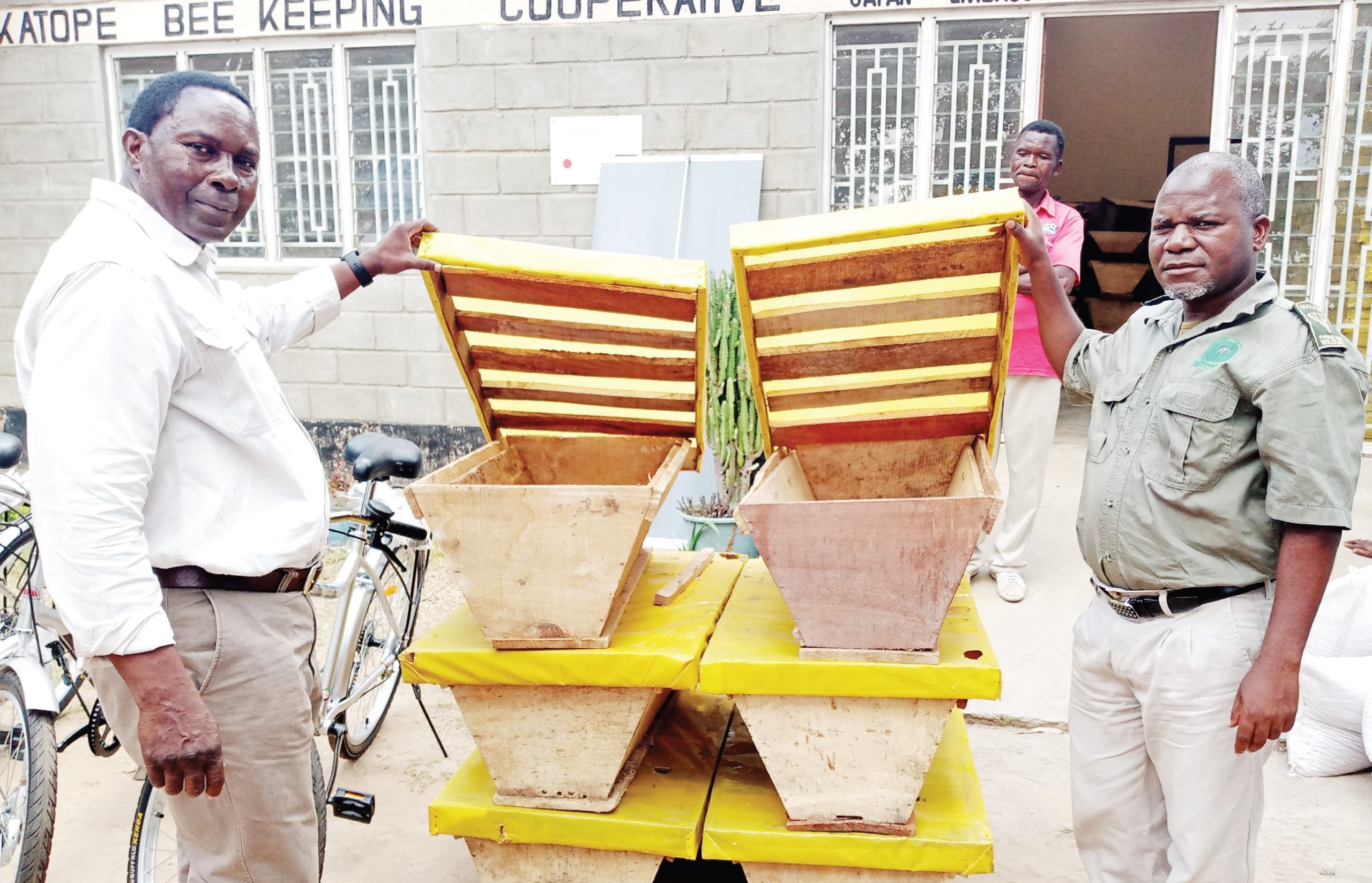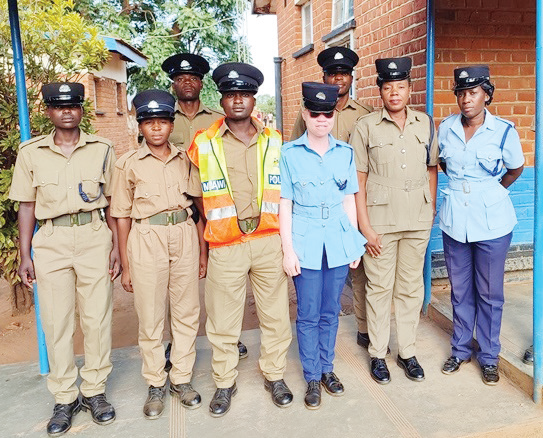Burning issues with your cup of tea
In October 2019, Malawi experienced 10 consecutive days with a sudden surge in temperature that left vegetation brown.
The heat scorch reminded tea growers in the southern districts of Mulanje and Thyolo of what could become a new normal as the planet gets warmer.

For two decades, the country’s second-largest export has experienced falling yields and a shrinking harvesting season as rains have not only become scanty but also unpredictable.
“Previously, we used to pick tea for eight months from October to May. Nowadays, the harvesting period is either two or three months shorter,” says Limbani Chiseko, a model farmer who mentors smallholder growers in hilly villages surrounding Satemwa Tea Estate in Thyolo district.
The climate shocks worsen job losses, poverty and hunger for seasonal workers often seen tossing the export leaf into massive baskets on their backs in the postcard plantains that drape Thyolo, Mulanje and Nkhata Bay.
Big employer
The industry employs over 50 000 workers, including 12 000 smallholder growers like those Chiseko guides in the absence of agricultural extension workers. This makes it the country’s second-largest employer after the civil service.
However, their toils scarcely unhook them from debilitating poverty.
The seasonal tea pickers earn K1 586 a day when they reap 53 kilogrammes of green leaf, forcing them to work overtime for extra pay.
“This is above the K35 000 minimum monthly wage approved by governments, but it isn’t a fair wage because most tea pluckers get much less because they only come to work when needed,” says Rose Singano, leader of the Plantation and Agricultural Workers Union (Pawu) gender equality wing.
She warns that unless workers get enough to live decently until the next pay, the desperation to earn more could bring back child labour into the tea estates.
The annual earnings of the locals pushed to rocky hilltops surrounding the colonial plantations keep falling due to a changing climate personified by the consecutive hot days that measured 40 degrees Celcius at Mimosa weather station in Mulanje.
Besides, the low-earning communities have to do with falling food production from their tiny, barren fields.
“Many workers cannot stand up for their right to decent work and fair wage because they don’t belong to union,” says Pawu president Denis Banda.
His union has 12 750 members, just over a quarter of the tea workforce.
“There are few permanent workers in the tea fields. Most are seasonal, so they unionise today and opt out when they return in the next tea-picking season,” says Banda.
To the union leader, the fortnightly pay constitutes a major low when processing the prized leaf for the world market.
He explains: “We have rights, but there are knowledge gaps and fragmented unionism.
“The earnings could beat the minimum wage if people worked every day, but many work just three days a week as we come to the close of the tea-picking season. They cannot earn enough to feed their families, send children to school and acquire assets, including decent housing.
Tackling inequalities
The tea pickers now work from December to April when most planters shave off the tops of tea bushes in readiness for another harvesting season.
Their hand-to-mouth pay is subject to a fair pay campaign Oxfam is running in the three tea-growing districts.
The international non-governmental organisation with support from the Rainforest Alliance and IDH, the sustainable tea initiative, is strengthening Pawu to negotiate for fair wages most likely to eliminate inequalities.
Oxfam executive director Lingalireni Mihowa is concerned that plantation workers remain on the peripheral of the tea economy.
She explains: “The inequalities were pronounced at the start of the Tea 2020 Revitalisation Programme in 2015, but they are waning as some estates have rolled out nutritional and housing programmes. This is good, but still not good enough.”
“Most people in Thyolo and Mulanje live on the margins of tea estates where they have no land of their own and they spend all time working in the tea estates. When they knock-off, they go to nothing really.”
For Mihowa, this is the reason the southern tea-growing districts have high poverty levels.
As climate change bites harder and the harvesting gets shorter, the people trapped in rampant poverty are enduring untold misery.
“We want people to have a voice to negotiate for a fair wage. Besides, there have to be more ways these people can earn a decent living. Earning a wage approved by the government is good, but the estates need to be cushioning these workers with other sources of livelihood,” says Mihowa.
She salutes some estates for introducing savings and lending groups where the workers borrow to start and grow businesses and other alternative sources of income.
“The people left on the peripherals need backups,” she says.
According to Tea Association of Malawi (Taml) chairperson Sangwani Hara, the tea industry is sailing through dire straits presently.
“In April last year, tea production had fallen by five percent. Last month, the volumes continued to fall as climate change affects the tea industry. Even macadamia yields within the tea fields dropped by 20 to 25 percent,” he states.
Climate adaptation
Meanwhile, scientists at the Tea Research Foundation of Central Africa in Mulanje have come up with drought-resistant tea to overcome climate shocks that affect both plantation owners and workers.
However, the tea fields that deck the southwestern highlands close to the border between Malawi and Mozambique are still dotted by trees planted over 60 years ago.
“Tea is a perennial crop, so the speed at which we are replacing the drought-prone crop depends on the economic outlook. If the harvest is good and the prices on the world market are favourable, estates have money to invest in a resilient crop. If the condition is tough, they postpone the shift,” says Hara.
In 2005, the government rolled out a special fund to cushion the vital sector’s losses caused by climate change, but the industry has struggled to source new funding for climate-proofing.
Hara says climate financing is not trickling in fast enough into African economies hit hard by global warming fuelled by carbon emissions from developing economies in the west.
Meanwhile, a good cup of tea remains a sip too far for some hands that churn out the leaf. They simply do not earn enough to prioritise tea bags and loose teas of different brands and aromas compared to well-off consumers beyond the picturesque plantations. n
COVID SLOWS TEA EXPORTS
Covid-19 has thickened uncertainties over Malawi’s tea industry amid shrinking yield.
The coronavirus disease has claimed four lives from over 200 known cases in the country.
As employers decongest workspaces to disrupt the outbreak, keeping workers far apart means fewer hands picking and processing the leaf for export.
Tea Association of Malawi chairperson Sangwani Hara says Malawi’s second-largest forex earner has caught the cold.
Hara states: “We have appealed for no job losses as we focus on decongesting workplaces.
“Our export trade entirely depends on the samples we dispatch to potential buyers, but reports are delaying because most of them are working from home to prevent Covid-19 infection. We no longer cannot sell our tea quickly.”
Tea pumps three to 11 percent to the gross domestic product, only outpaced by tobacco.
Africa’s major tea-growing economies are exploring ways to cash in on sudden slumps faced by major exporters, including China, where the pandemic began last December, and India which has imposed a lengthy lockdown to stop the coronavirus spread.
“The market started to improve until two weeks when the Mombasa Auction clashed by 30 cents because one major buyer wasn’t buying. We don’t know whether it was just a blip or it will be permanent,” he says.
The tea industry employs over 50 000 employees. The coronavirus disease coincides with the tea-picking season in Mulanje, Thyolo and Nkhata Bay.
It has no cure no vaccine, but can be prevented by regularly washing hands with soap, keeping a safe distance, staying home and using alcohol-based hand sanitisers.
Recently, Oxfam donated plastic buckets, soap and cloth masks valued at K18 million to improve safety and hygiene of almost 12 000 workers in nine tea estates across Malawi.
“The months between March and September is the peak period for tea picking. Any disruption caused by Covid-19 can affect the economy and the benefits that we get from a viable tea industry,” says Lingalireni Mihowa, head of Oxfam in Malawi.





